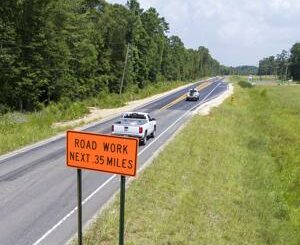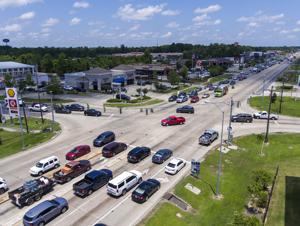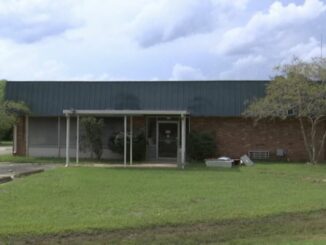
The owners of a group home for youth with disabilities have sued Pointe Coupee Parish, claiming officials are violating federal fair housing and disability laws by using new zoning ordinances to block their second location.
But parish officials say they are just following the rules, which the proposed group home doesn’t meet.
Pointe Coupee is one of several rural parishes outside Baton Rouge that have adopted significant zoning laws only in the past few years and are now facing legal battles over when and how they can restrict new construction.
And the lawsuit is just the latest legal fight in the region between groups trying to open new mental health treatment facilities and people who represent residents worried about the impact on their neighborhoods.
The lawsuit
Believe Therapeutic Group Home has operated a residence for youth with disabilities in New Roads since 2019, and wants to open a second near the 11700 block of La. 1. The children who would be housed there include those with PTSD, depression, autism, or other mental health issues that qualify as a disability, legal filings say.
But Pointe Coupee’s planning and zoning committee told Believe that the plan runs afoul of the new zoning ordinance the parish implemented in August 2021. The proposed site of the home sits in a rural/agricultural zone — in those zones, only four unrelated people are allowed to live in one home.
The zoning committee told Believe it would have to apply to have the area rezoned, but the organization instead applied for a variance — which requires a less intense bureaucratic process — that would give it an exception to allow up to 10 unrelated people to live in a home.
The variance was denied.
“What they’re trying to do is expand the definition of family to include more people so the group home could count as a family,” said Planning and Zoning Administrator Sal Genusa.
In a lawsuit, Believe argues the parish is violating the federal Americans With Disabilities Act and the Fair Housing Act, as well as the Louisiana Equal Housing Opportunity Act and the state public accommodations law.
“The federal regulations implementing the FHA specifically prohibit enacting or implementing land-use rules, ordinances, policies, or procedures that restrict or deny housing opportunities or otherwise make unavailable or deny dwellings to persons because of handicap,” the lawsuit states.
But parish officials say they are not denying the proposal specifically because the residents have mental health needs; it’s simply based on the number of people who would be housed there.
“Congregate housing, according to what we have adopted here in zoning, is permitted in the parish, just not in the rural ag where this house is located,” said Pointe Coupee Parish Council Chairman Dustin Boudreaux.
Dannie Garrett, the attorney for the parish, told council members they were not violating federal law.
“The Fair Housing Act doesn’t go that far,” he said at a September 2022 council meeting. “In fact, the case law says the accommodation has to be both reasonable and necessary. Given the fact that you can actually place one of these facilities in another zone without getting a variance, I think makes it not necessary to grant the variance.”
‘Not the area’
While parish officials say the problem is the number of people, not who those people are, some residents are clearly opposed to the idea of a group home specifically.
“I’m glad that somebody is trying to put forth the effort to help these kids, but that’s just not the area that it needs to be done,” one resident told the zoning commission at a meeting last year about the proposal, according to a transcript.
At that meeting, residents brought up fears about safety and a recent string of vehicle burglaries they thought were related to the already operating group home in New Roads.
Kevin McDonald, who was the New Roads police chief at the time, said the burglaries were not related.
“It wasn’t the kids of that residence,” McDonald said. “I’ve taken them out around the community, taken them to play basketball, taken them to different functions, games, and stuff like that. It was the group of kids when we had the disaster relief give-a-ways on Main Street that would carry the boxes to people’s cars. That’s the group of kids we are talking about.”
He said some issues occurred with youth who had behavioral issues that couldn’t be controlled when the New Roads facility first opened, but those residents were moved to a different facility.
“Most of the kids that come there are pretty much good kids,” he said.
John Adcock, an attorney for Believe, says state law requires that the group home be located in a residential area.
State rules for group homes include saying they should “ensure a more home-like setting,” where the residents can stay in touch with family, attend local schools, and “remain involved in community-based activities.”
“The living setting shall more closely resemble normal family existence than would be possible in a larger facility or institution,” the state rules say.
Residents of the existing New Roads group home have jobs at fast-food restaurants nearby and are able to use local basketball courts, for example.
“The goal of a therapeutic group home is to maintain the client’s connections to their community, yet receive and participate in a more intensive level of treatment in which the client lives safely in a 24-hour setting,” read LDH guidelines.
This is not the first time a home for people with mental health disabilities has faced backlash in Louisiana. Residents drove out a proposed facility for civilly committed patients in Baton Rouge and East Feliciana. In the Pointe Coupee case, the people staying in the home are younger and not civilly committed, but some still perceive them as dangerous.
“My client just thinks that people who want to help at-risk kids should not have to fight this hard to do so,” Adcock said.





Leave a Reply